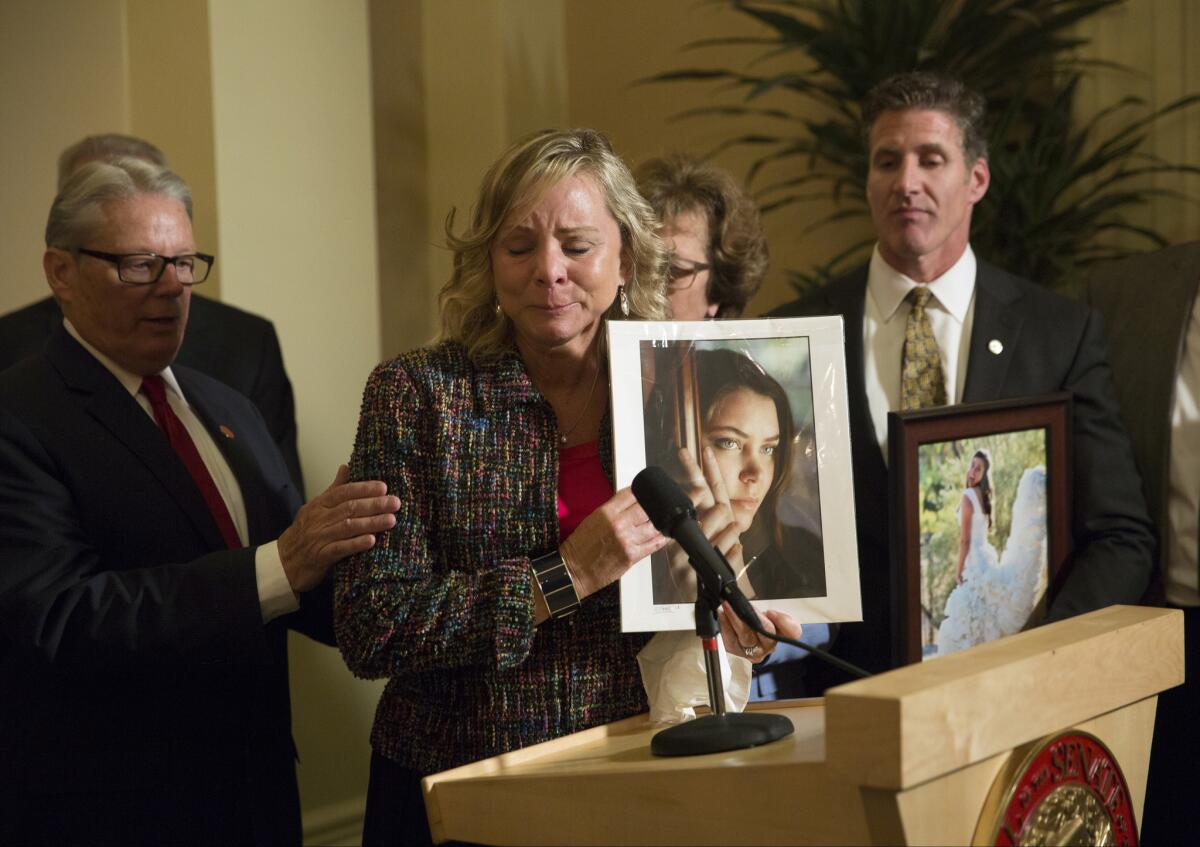Editorial: Gov. Brown was correct about the right-to-die bill

Debbie Ziegler, mother of Brittany Maynard, speaks to the media after the passage of legislation which would allow terminally ill patients to legally end their lives at the state Capitol on Sept. 11.
It is fitting that Gov. Jerry Brown wrote a thoughtful and unusually personal message when he signed the historic piece of legislation known officially as ABx2 15. This is the so-called right to die bill, which allows doctors, under tightly defined circumstances, to write lethal prescriptions for patients who have been diagnosed with less than six months to live. Brown, a former seminarian, wrote about the many people he had consulted, including a Catholic bishop, and the many pleas he had read on both sides.
“In the end,” he wrote, “I was left to reflect on what I would want in the face of my own death.
“I do not know what I would do if I were dying in prolonged and excruciating pain. I am certain, however, that it would be a comfort to be able to consider the options afforded by this bill. And I wouldn’t deny that right to others.”
Brown is known for his to-the-point signing and veto messages, and this one was only slightly longer than usual. This time he was writing as much from the heart as from the head, and yet he succinctly articulated the most important aspects of the right to die: It’s complicated. It’s frightening. It’s difficult. It’s also terribly personal, and because it is so personal, affecting each terminally ill patient in a different way, it would be shameful to deny that choice over life and death to anyone.
This is the extraordinary year when, after so many earlier defeats, the Legislature and the governor finally made end-of-life decisions possible for the people of this state. California is only the fourth state to pass such a law (a court ruling also allows physician-assisted suicide in Montana).
But this signing stands out not only because it offers a choice to so many people but because the adoption of such an important law in a state this big gives a big boost to efforts elsewhere.
There’s little reason to think that ending one’s life early will become the new norm in California. That isn’t what has happened in Oregon, whose 20-year-old law served as the model for this legislation. People there have exercised this option sparingly — in the hundreds, not the thousands, over all those years. The law there has not been abused; patients have not been pressured to take their own lives; there are no signs of any form of malpractice or indications that the families of terminally ill patients regretted having had this option available.
But Brown put his finger on it when it came to the most important reason to feel at ease about the bill: People might not know what they would do faced with this kind of prognosis. Many Oregonians who asked for and received their prescriptions never actually used them. But that doesn’t mean they weren’t grateful to have the choice. We should not deny that choice to others, and now California no longer will.
Follow the Opinion section on Twitter @latimesopinion and Facebook
More to Read
A cure for the common opinion
Get thought-provoking perspectives with our weekly newsletter.
You may occasionally receive promotional content from the Los Angeles Times.






